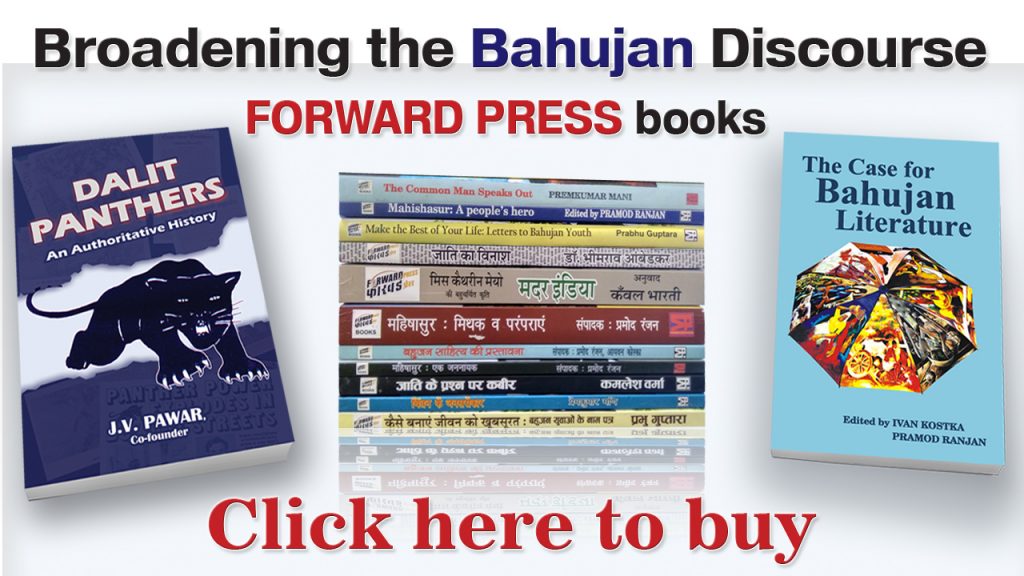The World Inequality Lab has just published the World Inequality Report 2022. The Paris-based organization, which is directed by top economists, including Thomas Piketty, has painted a grim picture of the inequality in India based on income and wealth distribution, women’s share of the total labour income and carbon footprint. Economist Prof Jean Drèze has travelled extensively in rural India and studied meticulously both society and workings of public institutions. A visiting professor at Ranchi University, Ranchi, Jharkhand, and an honorary professor at the Delhi School of Economics, Drèze answers FORWARD Press’ questions on the social realities behind India’s economic inequality.
According to the World Inequality Report 2022, India is one of the most unequal countries in the world. Do you agree?
Certainly. In fact, it may be the most unequal country in the world, if you consider social as well as economic inequalities. The Report focuses on inequalities of income and wealth, but India also has to contend with extreme inequalities of caste and gender. Inequalities of class, caste and gender tend to reinforce each other. The result is a very oppressive social system that possibly has no counterpart elsewhere in the world.
If you look at the wealth distribution from 1995 onwards, you will see that a steep climb among the top 10 per cent began around 2007 and a decline among the bottom 50 per cent began around the same time. You resigned as a member of the National Advisory Council in 2005. Did you foresee government policies aiding such an increase in wealth disparity in the years that followed?
I doubt that the data are precise enough to conclude that there was an inflection point around 2007. What we do know with some confidence is that there was a sharp increase in economic inequality in the post-liberalization period. That was reasonably clear by 2005, but my exit from the National Advisory Council had little to do with it.
The World Inequality Report does not talk about the social inequalities on which the economic inequalities are built. Is caste the elephant in the room?
I think it’s an elephant, but not necessarily in the room, because the report explicitly focuses on the measurement of economic inequality. The authors are writing within their domain of expertise, and that is fair enough. If we want to understand equality in all its dimensions, we must obviously go beyond the limited focus of the report. That’s where the caste elephant comes in.
Don’t you think a caste census is essential so that caste is factored in in the measures to reduce inequality?
I think that a caste census would help us to understand the pervasive and persistent role of caste in Indian society, and also to do something about it. For instance, it would help us to see that the positions of power and influence are still overwhelmingly dominated by the privileged castes. It would also give a clearer picture of how affirmative action policies have altered that domination if at all. Resisting a caste census is like refusing a medical examination when you are ill.

Don’t you think the extreme inequality in India today is in keeping with the Varnashrama Dharma, the proponents of which are in power today?
I would say that Varnashrama Dharma creates a general tolerance of extreme inequality that manifests itself in different ways, from wealth disparities to patriarchy aside from the caste system itself. Not all sections of India’s power elite are proponents of Varnashrama Dharma, but it seems to me to be an integral part of Hindu nationalism, the ideology of the ruling party. Golwalkar himself clearly wrote that the Hindu framework of society, as he called it, is “characterized by varnas and ashrams”. Yogi Adityanath, the latest mascot of the Hindutva movement, also praised the caste system in an interview with NDTV four years ago. If moderate Hindu nationalists oppose Varnashrama Dharma, let them say it.
The female labour income share is 18 per cent, which is one of the lowest in the world and lower than the Asian average. How do you see the impact of this on inequality, given how Ambedkar linked patriarchy and caste?
The oppression of women in India has a lot to do with their economic dependence on men, and husbands in particular. This dependence reflects their lack of access to property, employment, education and social support. Perhaps it is not surprising that Indian men are reluctant to let women enter the paid labour force, because that would give them some independence and make it harder to subjugate them. Caste reinforces men’s obsession with the subjugation of women, especially among the privileged castes, because a free woman is a threat to the purity and unity of the caste. But women have started fighting back, and hopefully, their struggle for liberation will soon turn into a big force of positive change in Indian society.
Forward Press also publishes books on Bahujan issues. Forward Press Books sheds light on the widespread problems as well as the finer aspects of Bahujan (Dalit, OBC, Adivasi, Nomadic, Pasmanda) society, culture, literature and politics. Contact us for a list of FP Books’ titles and to order. Mobile: +917827427311, Email: info@forwardmagazine.in)
The titles from Forward Press Books are also available on Kindle and these e-books cost less than their print versions. Browse and buy:
The Case for Bahujan Literature
Dalit Panthers: An Authoritative History






